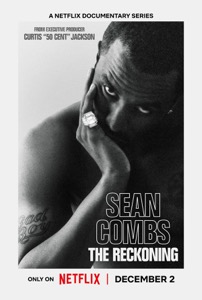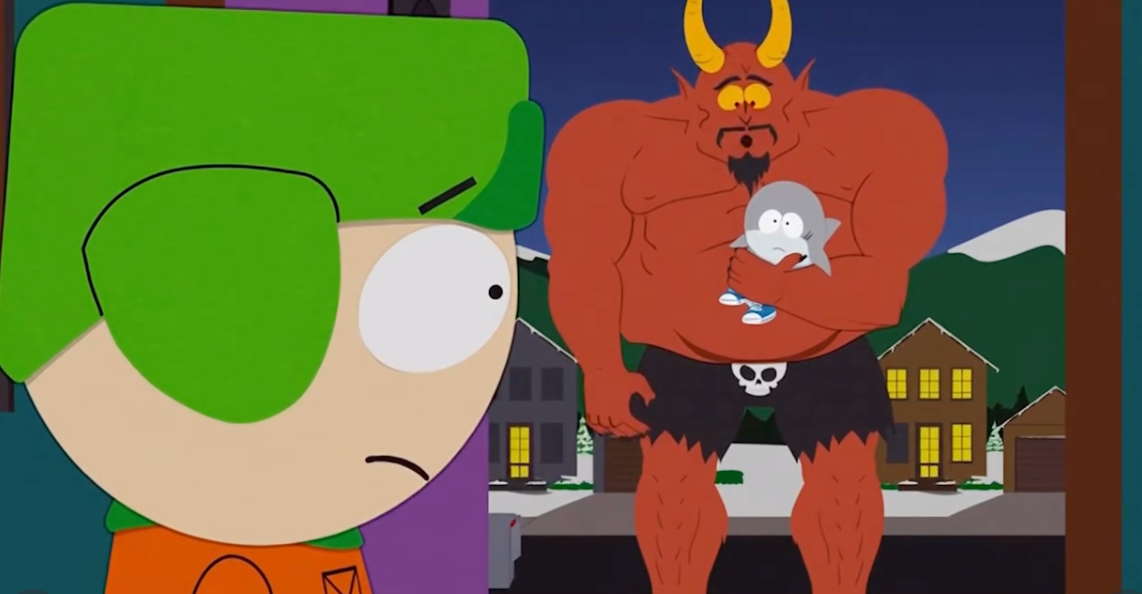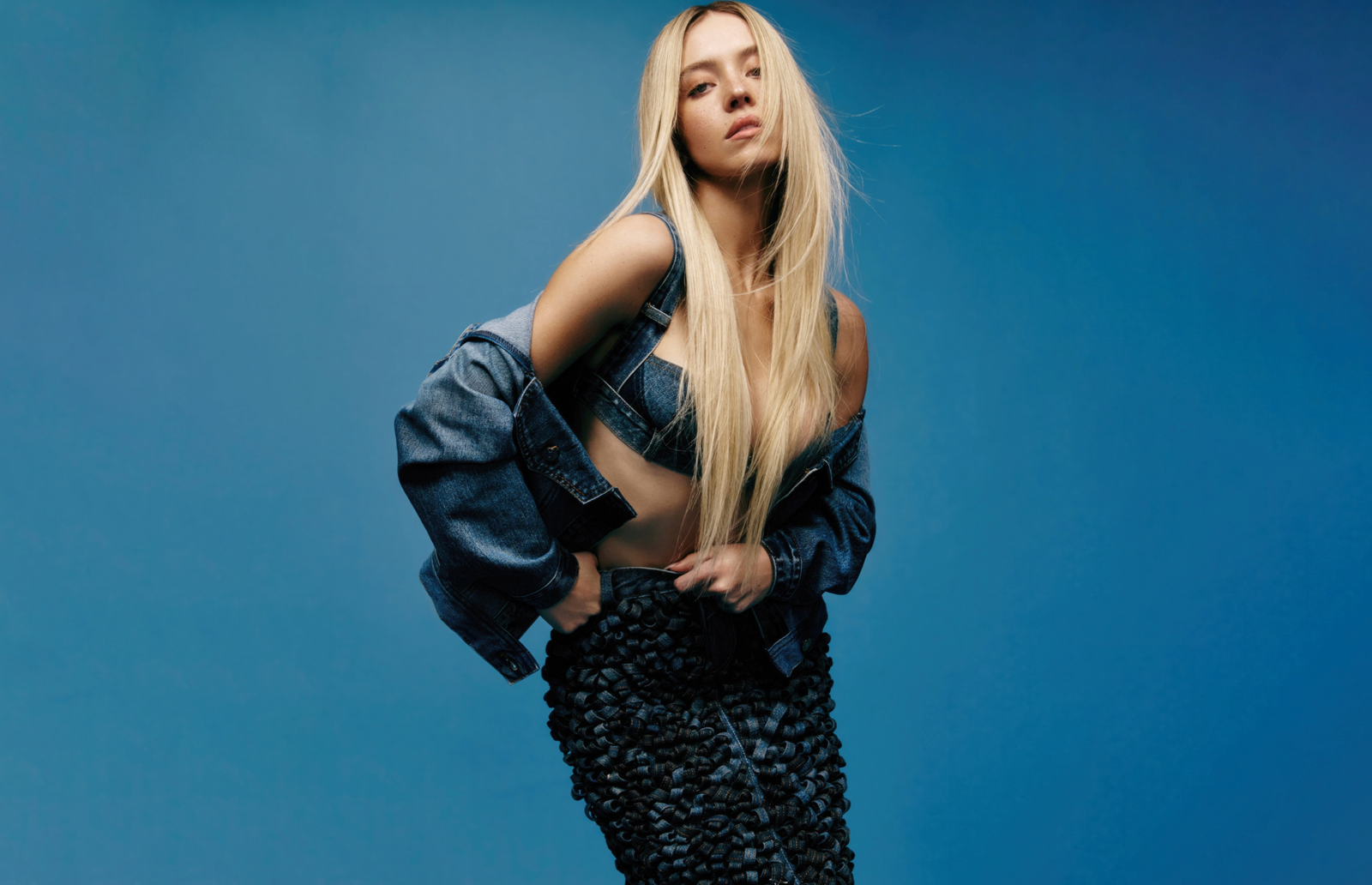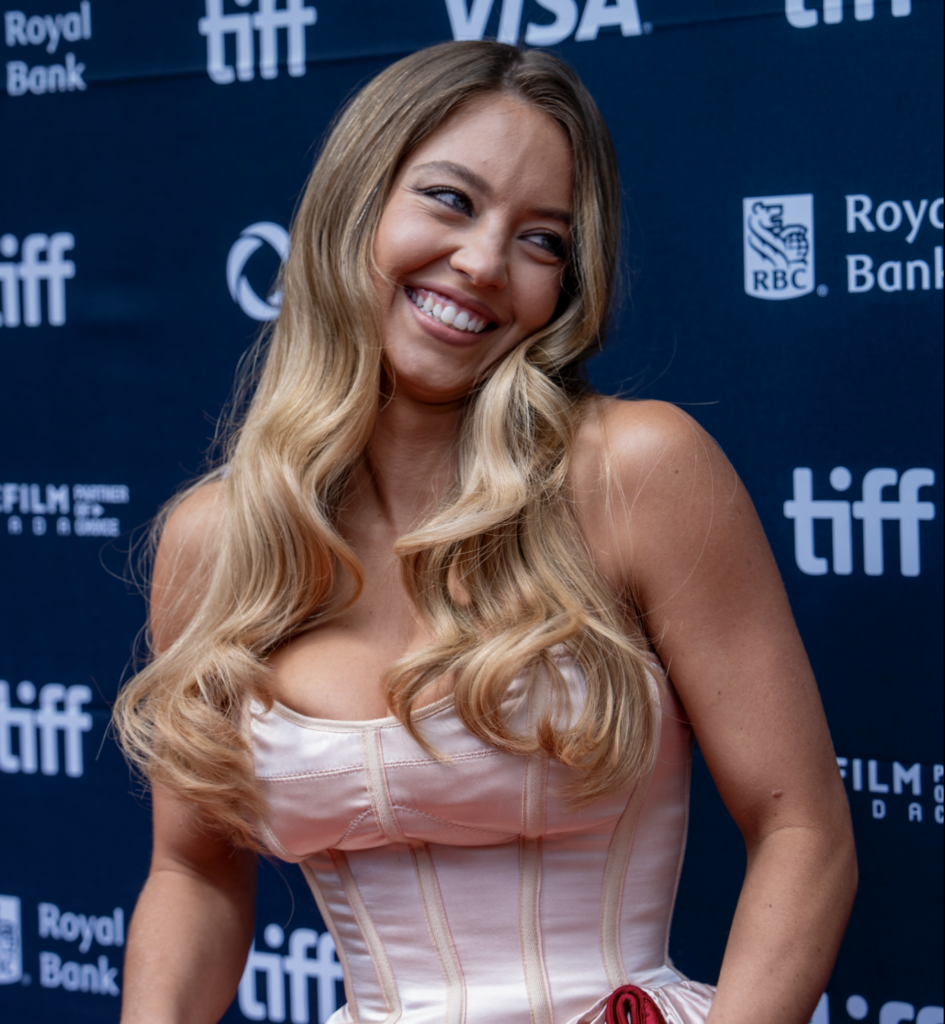Entertainment
Crystal Hefner Teases Memoir About Playboy Mansion: ‘No One Is Safe’ on August 4, 2023 at 12:00 am Us Weekly

Crystal Hefner is on a path to healing. After 10 years living in the infamous Playboy Mansion, the former wife of Hugh Hefner — they were wed in 2012 until his death of natural causes in 2017 — is making a fresh start. She’s relocated from L.A. to Hawaii, where she’s renovated a home on the Big Island. She also has a memoir due out in 2024, Only Say Good Things: Surviving Playboy and Finding Myself, that will be sure to send shock waves through Hollywood. As Hefner tells Us exclusively, speaking via Zoom from her idyllic Hawaii house, “No one is safe.”
Hefner was just 21 when she met Hugh at a Halloween party at the mansion. Days later, he asked the Arizona native to move in with him and his other girlfriends, 18-year-old twins Karissa and Kristina Shannon. “Going in, I was a deer in the headlights. It was like I just got the golden ticket for the Willy Wonka [factory],” notes Hefner, 37. But eventually, she adds, “it all started crumbling down.”
Over the last several years, dozens of women have come forward with horror stories of their time at the Playboy Mansion. Multiple models and former girlfriends accused Hugh and his circle of friends of sexual assault, claimed the magazine mogul was a master manipulator and described life at the mansion as a prison, complete with dating rules and a strictly enforced curfew.
Hefner was still living there when Holly Madison’s scathing 2015 memoir, Down the Rabbit Hole: Curious Adventures and Cautionary Tales of a Former Playboy Bunny, was released. “I remember getting the E-book so I could type my name and just see what was said about me,” she laughs. “And [Holly] said something minor in there about how, like, I ripped some stickers off a mirror. But I remember the mansion being upset about it. It was when women had less of a voice.”
“It took years for me to understand what I went through and the bubble that I was in for so long,” Hefner says of life in the Playboy Mansion. Tracey Lyn
For Hefner, it was only after she began seeing a therapist following Hugh’s death that she could start to unravel the trauma she’d endured. “Therapy really helped,” says Hefner. “You start backtracking and [noticing] different behaviors. I’m like, ‘Oh, that’s gaslighting. That’s narcissism.’ It took years for me to understand what I went through, understand myself and also understand Hef and why he did certain things. You know, there’s a story behind everything.”
As she delved into her past, Hefner says she began the process of “deprogramming.” At the mansion, “Your value is what you look like,” she notes. “I was rewarded for being codependent and feeling like I was nothing without Hef and had no value of my own. You’re rewarded for not having a life of your own outside of the person,” she continues. “I’ve learned a lot about self-worth, self-love, advocating for yourself and healthy relationships.”
Hefner’s also relearning how to have female friendships. “The women at the mansion were very catty. You could give someone $10,000 to not be my friend anymore, and they would take the money,” she shares, noting that out of the “thousands” of girls she met there, she’s stayed in touch with “maybe five.” While several of them, including Girls Next Door stars Holly, Bridget Marquardt and Kendra Wilkinson. have openly discussed their time at the mansion, Hefner says she has a different perspective. “I wasn’t one of three girlfriends on a show. We were married; I was there with Hugh until he died.”
Crystal (with Hugh in May 2013) initially called off their engagement in 2016. They wed the following year. Kevan Brooks/Admedia/Sipa/Shutterstock
For Hefner, the writing process was cathartic. “When I read the first manuscript, I just burst out crying in the beginning paragraph because I felt like I finally have a voice, and this is it,” she shares, adding that the hardest chapters to write were those on sex and death. “Everyone assumes [I was] some dumb young girl who became part of [Hugh’s] girlfriend entourage, and, you know, ‘She’s an idiot.’ But now I have a pretty clear understanding of what I went through and what went on, and it’ll be apparent in the book.”
Although Hefner notes this isn’t a salacious tell-all, readers are in for some heavy bombshells. “There are hard stories and people that have hurt me, and they’re in there,” says Hefner, noting that although the names of numerous women and celebrities have been changed, she’s not letting anyone off the hook. “The stories are very detailed, and there are things that have never been spoken about before.”
“Building in Hawaii was a process of finding out what I want and who I am,” says Hefner. Tracey Lyn
Ultimately, she hopes her memoir will help other women. “I wish I had this book when I was 21 before going into the mansion,” Hefner says, adding that she believes her late husband would appreciate her sharing her perspective. “I hope that being such an advocate for freedom of speech, that [Hugh] would be an advocate for me telling my story. Women’s voices are getting louder, and that’s really important.”
These days, the licensed realtor is busy flipping houses in Hawaii and L.A. (where she still owns a home) and venturing into the NFT space with First Ape Wives Club, a digital membership pass to a world of travel amenities, including booking upgrades and hotel bonuses. It’s a far cry from her life just six years ago. “I needed a change. I look at photos of when I was at the mansion, and it feels like I was wearing a costume,” admits Hefner, who had her breast implants removed in 2016. She’s dipped her toe into the dating waters since Hugh’s passing and says she wants to get married — “I’m definitely a romantic” — and have kids someday. “I get to spend time here in Hawaii and travel and hang out with people who have my best interests at heart,” adds Hefner. “Life is good.”
Reporting by Andrea Simpson
Crystal Hefner is on a path to healing. After 10 years living in the infamous Playboy Mansion, the former wife of Hugh Hefner — they were wed in 2012 until his death of natural causes in 2017 — is making a fresh start. She’s relocated from L.A. to Hawaii, where she’s renovated a home on
Us Weekly Read More
Entertainment
What We Can Learn Inside 50 Cent’s Explosive Diddy Documentary: 5 Reasons You Should Watch

50 Cent’s new Netflix docuseries about Sean “Diddy” Combs is more than a headline-grabbing exposé; it is a meticulous breakdown of how power, celebrity, and silence can collide in the entertainment industry.
Across its episodes, the series traces Diddy’s rise, the allegations that followed him for years, and the shocking footage and testimonies now forcing a wider cultural reckoning.

1. It Chronicles Diddy’s Rise and Fall – And How Power Warps Reality
The docuseries follows Combs from hitmaker and business icon to a figure facing serious criminal conviction and public disgrace, mapping out decades of influence, branding, and behind-the-scenes behavior. Watching that arc shows how money, fame, and industry relationships can shield someone from scrutiny and delay accountability, even as disturbing accusations accumulate.

2. Never-Before-Seen Footage Shows How Narratives Are Managed
Exclusive footage of Diddy in private settings and in the tense days around his legal troubles reveals how carefully celebrity narratives are shaped, even in crisis.
Viewers can learn to question polished statements and recognize that what looks spontaneous in public is often the result of strategy, damage control, and legal calculation.
3. Survivors’ Stories Highlight Patterns of Abuse and Silence
Interviews with alleged victims, former staff, and industry insiders describe patterns of control, fear, and emotional or physical harm that were long whispered about but rarely aired in this detail. Their stories underline how difficult it is to speak out against a powerful figure, teaching viewers why many survivors delay disclosure and why consistent patterns across multiple accounts matter.
4. 50 Cent’s Approach Shows Storytelling as a Tool for Accountability
As executive producer, 50 Cent uses his reputation and platform to push a project that leans into uncomfortable truths rather than protecting industry relationships. The series demonstrates how documentary storytelling can challenge established power structures, elevate marginalized voices, and pressure institutions to respond when traditional systems have failed.
5. The Cultural Backlash Reveals How Society Handles Celebrity Accountability
Reactions to the doc—ranging from people calling it necessary and brave to others dismissing it as a vendetta or smear campaign—expose how emotionally invested audiences can be in defending or condemning a famous figure. Watching that debate unfold helps viewers see how fandom, nostalgia, and bias influence who is believed, and why conversations about “cancel culture” often mask deeper questions about justice and who is considered too powerful to fall.
Entertainment
South Park’s Christmas Episode Delivers the Antichrist

A new Christmas-themed episode of South Park is scheduled to air with a central plot in which Satan is depicted as preparing for the birth of an Antichrist figure. The premise extends a season-long narrative arc that has involved Satan, Donald Trump, and apocalyptic rhetoric, positioning this holiday episode as a culmination of those storylines rather than a stand‑alone concept.
Episode premise and season context
According to published synopses and entertainment coverage, the episode frames the Antichrist as part of a fictional storyline that blends religious symbolism with commentary on politics, media, and cultural fear. This follows earlier Season 28 episodes that introduced ideas about Trump fathering an Antichrist child and tech billionaire Peter Thiel obsessing over prophecy and end‑times narratives. The Christmas setting is presented as a contrast to the darker themes, reflecting the series’ pattern of pairing holiday imagery with controversial subject matter.
Public and political reactions
Coverage notes that some figures connected to Donald Trump’s political orbit have criticized the season’s portrayal of Trump and his allies, describing the show as relying on shock tactics rather than substantive critique. Commentators highlight that these objections are directed more at the depiction of real political figures and the show’s tone than at the specific theology of the Antichrist storyline.
At the time of reporting, there have not been widely reported, detailed statements from major religious leaders focused solely on this Christmas episode, though religion-focused criticism of South Park in general has a long history.
Media and cultural commentary
Entertainment outlets such as The Hollywood Reporter, Entertainment Weekly, Forbes, Slate, and USA Today describe the Antichrist arc as part of South Park’s ongoing use of Trump-era and tech-world politics as material for satire.
Viewer guidance and content advisory
South Park is rated TV‑MA and is intended for adult audiences due to strong language, explicit themes, and frequent use of religious and political satire. Viewers who are sensitive to depictions of Satan, the Antichrist, or parodies involving real political figures may find this episode particularly objectionable, while others may view it as consistent with the show’s long‑running approach to controversial topics. As with previous episodes, individual responses are likely to vary widely, and the episode is best understood as part of an ongoing satirical series rather than a factual or theological statement.
Entertainment
Sydney Sweeney Finally Confronts the Plastic Surgery Rumors

Sydney Sweeney has decided she is finished watching strangers on the internet treat her face like a forensic project. After years of side‑by‑side screenshots, “then vs now” TikToks, and long comment threads wondering what work she has supposedly had done, the actor is now addressing the plastic surgery rumors directly—and using them to say something larger about how women are looked at in Hollywood and online.

Growing Up on Camera vs. “Before and After” Culture
Sweeney points out that people are often mistaking normal changes for procedures: she grew up on camera, her roles now come with big‑budget glam teams, and her body has shifted as she has trained, aged, and worked nonstop. Yet every new red‑carpet photo gets folded into a narrative that assumes surgeons, not time, are responsible. Rather than walking through a checklist of what is “real,” she emphasizes how bizarre it is that internet detectives comb through pores, noses, and jawlines as if they are owed an explanation for every contour of a woman’s face.
The Real Problem Isn’t Her Face
By speaking up, Sweeney is redirecting the conversation away from her features and toward the culture that obsesses over them.
She argues that the real issue isn’t whether an actress has had work done, but why audiences feel so entitled to dissect her body as public property in the first place.
For her, the constant speculation is less about curiosity and more about control—another way to tell women what they should look like and punish them when they do not fit. In calling out that dynamic, Sweeney isn’t just defending herself; she is forcing fans and followers to ask why tearing apart someone else’s appearance has become such a popular form of entertainment.















